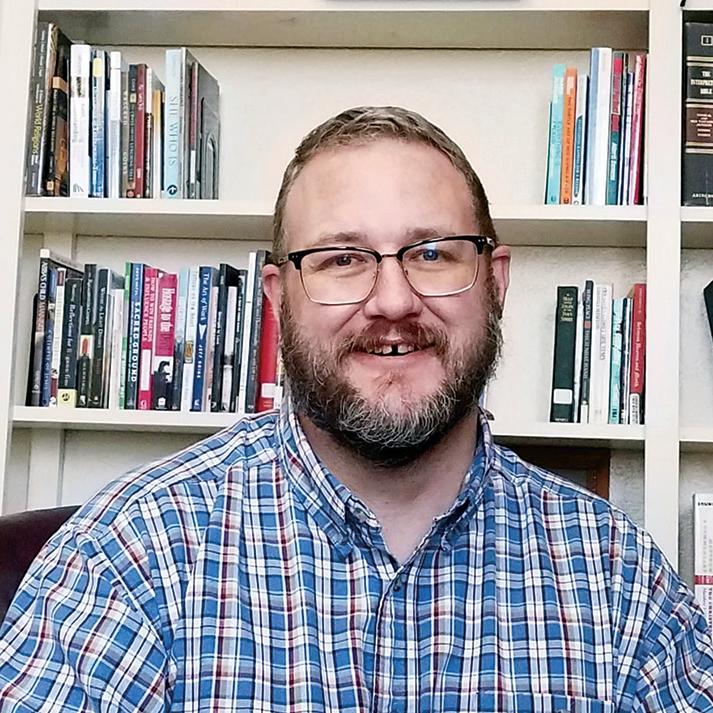
2 minute read
Sheth LaRue (MDiv’20)
IN MID-SEPTEMBER—SIX WEEKS INTO MY FIRST CALL—I presided at the funeral of one of my session members. My legs ached as I walked up and down the stairs of the chancel, and as I preached I had to speak in short, intentional sentences. These residual effects were far better than death. I had contracted the virus from the man in the coffin a month earlier when we delivered food to the working poor in our small town in southwest Missouri. And as I commended his body to the earth, I silently questioned why it wasn't me.
My legs still ache and my sentences have slowly grown in length, but I wonder how long it will be until I am back to my pre-COVID life. I wonder how long it will be until I can walk the four or five miles a day I used to, or can preach with long, eloquent sentences. I wonder how long it will be before my partner and I can smile and remember fondly those weeks when we worried and prepared for my possible death. I wonder how long it will be before we can get back to those days—those days way back in February when the virus was but a blip in the news. Those days when we could eat at packed restaurants and shake hands … those days when we could see each other’s smiles and worship together … those days when life was “normal.”
Advertisement
My hands have been forced into motion as this virus has settled in the cracks and crevices of life around me where “normal” is no longer the norm. As much as I long for those normal days not so long ago, I honestly don’t think I would want to go back. I don’t think I would want to go back, because we have all been forced to think about things that we have shuffled aside for so long. We have had to wrestle with what pro-life truly means. We have had to wrestle with what a confessing and communing body looks like. We have had to wrestle with both the use of technology in worship and how we can use technology to provide worship. We have had to wrestle with end-of-life plans, with trusting the unknown, and with praying for those people we just don’t like. We have been forced to care for our neighbors, care for our church, and care for the things we have ignored for too long.
In some strange way, I am thankful for this virus and the ways in which it has moved us, the standing-still. It has forced us all to do something. We must commend to the earth what we have known; we must begin to hope for something new, not only for the life of the church but for our lives as well. I pray that we can embrace Paul’s words of being “sorrowful, yet always rejoicing” (2 Cor. 6:10) by mourning the losses of people and things around us while simultaneously rejoicing in the resurrection and in the resurrection to come.
– The Rev. Sheth LaRue (MDiv’20) Pastor, First Presbyterian Church, Aurora, Missouri







